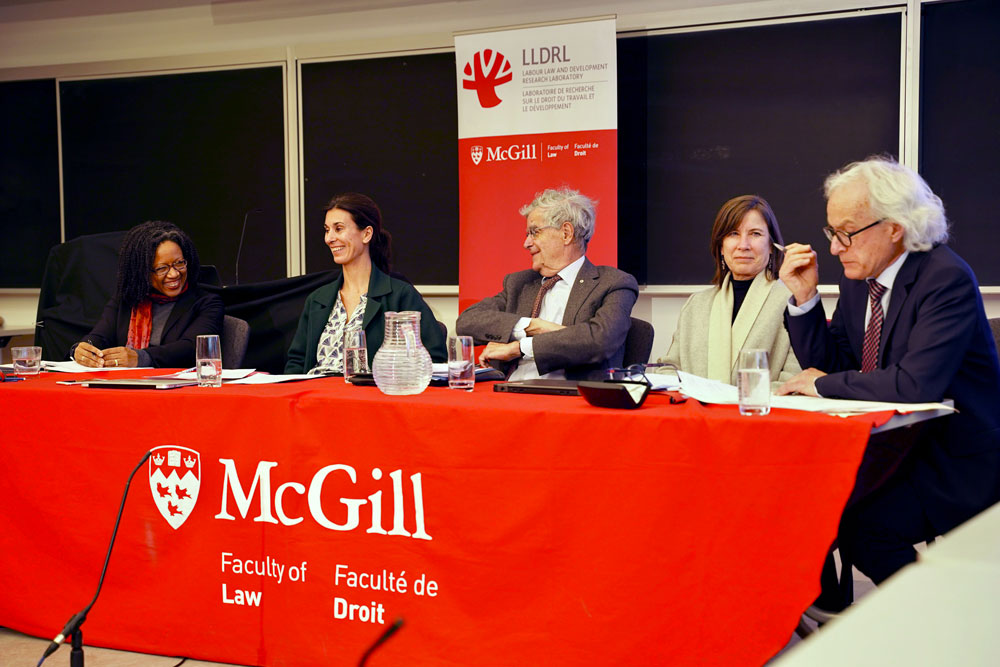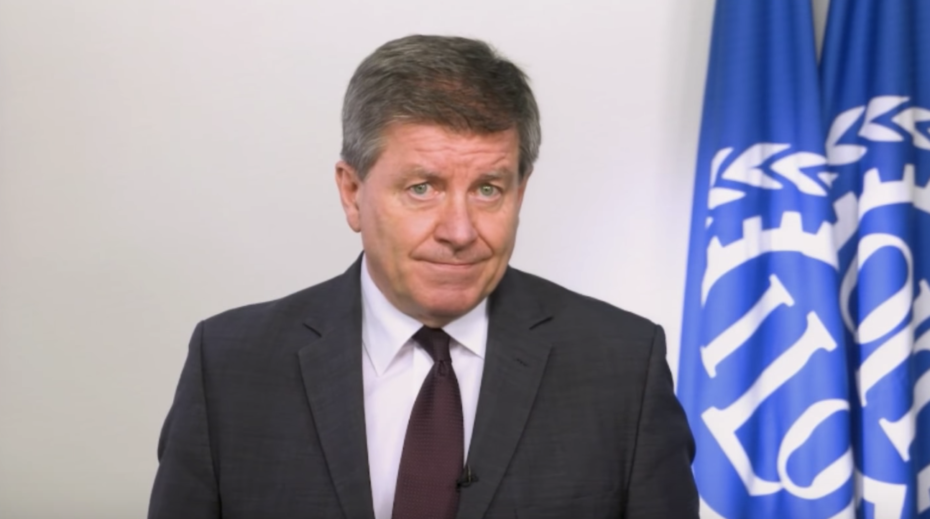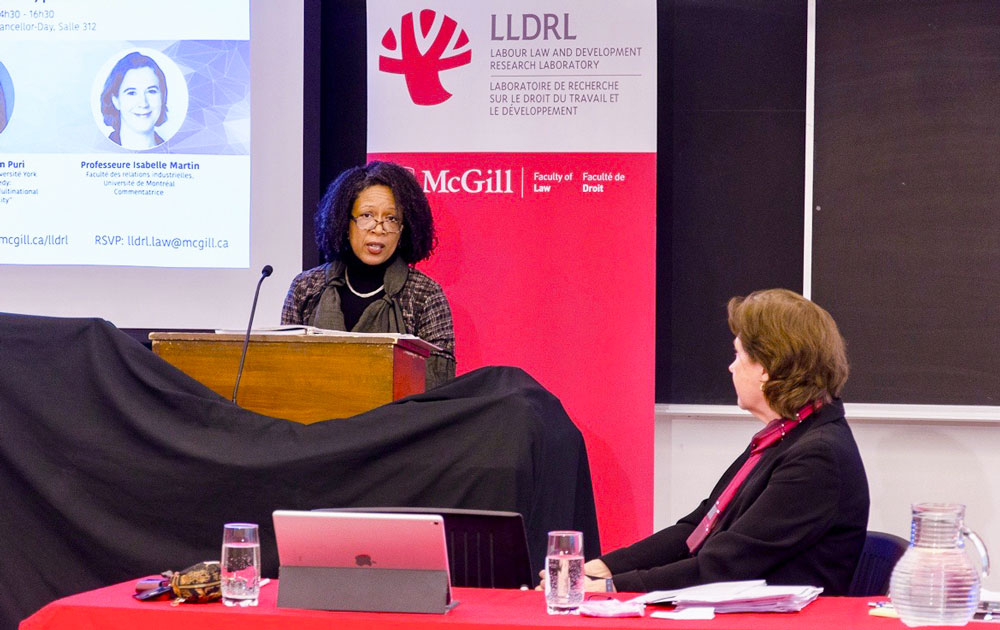
To mark the 100th anniversary of the International Labour Organization (ILO), Professor Adelle Blackett developed an ambitious project inspired by the agency’s international vocation. Leading experts from around the world accepted her invitation to participate in an innovative course, live streamed from Chancellor Day Hall.
“McGill holds a unique place in the history of the International Labour Organization (ILO),” affirms Professor Adelle Blackett, Canada Research Chair in Transnational Labour Law and Development. Created in 1919 as part of the League of Nations, the ILO is the world’s oldest international organization.
In the torment of World War II, Canada offered a refuge to this agency charged with the promotion of social justice and human and labour rights, from 1940 through 1948. From its temporary headquarters at McGill, the ILO prepared its post-war future and worked on its constitutional annex, the 1944 Declaration of Philadelphia, a declaration which Franklin D. Roosevelt referred to as “a landmark in world thinking.”
International forum
Today, a specialized agency of the United Nations, the ILO will celebrate its 100th anniversary on April 11. Transnational Futures of International Labour Law: la justice sociale dans le monde du travail, a new seminar developed by Professor Blackett, marks this occasion by creating an international forum to celebrate the ILO’s accomplishments and critically reflect on the future of labour law. “This course takes as a starting point that the ILO’s foundational principles are as relevant in the contemporary global economy as they were when the ILO’s constitutional annex was adopted,” Professor Blackett explains.

Every week, international experts in labour law and ILO practitioners give a presentation on a contemporary labour law issue. The first part of the session is open to the public and streamed live; a discussion period reserved for students enrolled in the course follows the lecture. The impressive list of lecturers features the Honourable Louis LeBel, retired Justice of the Supreme Court of Canada; Professor Emeritus Evance Kalula, Chair, ILO Freedom of Association Committee; Professor Emeritus Harry Arthurs of the Osgoode Hall Law School; and many of the ILO’s highest ranking legal officers. Professor Larry Helfer of Duke University; Professor Katherine Lippel of the University of Ottawa; and Professor Emerita Moira Campbell of Dalhousie University have also given presentations.
With its forward-looking format and list of leading visiting lecturers, the course has garnered international attention from the labour law community; even the current ILO Director General, Guy Ryder, recorded a personalized speech for the course’s inaugural session, explaining the relationship firmly rooted in history between the organization and McGill, and their shared commitment to furthering social justice. “The lamps will indeed have gone out if international organizations like the ILO should cease to function because they have no friends,” he commented, citing McGill’s former Principal and Vice-Chancellor Frank Cyril James.
Human rights, responsible citizenship, Canada’s role in the world
The initiative is funded by the Pierre Elliott Trudeau Foundation. “With a bold, engaged and pragmatic format, the course incorporates three touchstone themes of the Trudeau Foundation,” said the Foundation’s president and CEO, Pascale Fournier, at Transnational Futures’ inaugural session: human rights and dignity, responsible citizenship, and Canada’s role in the world at a time when borders are eroding.
“The seminar owes its success to the admirable teamwork that brought it together,” Professor Blackett says. Several dedicated Faculty members, McGill’s IT team and students affiliated with the LLDRL have pooled their efforts to make the project a reality. McGill’s multimedia team is charged with the technical production of the course and ensures that a high-quality recording of each session is available online.
Transnational Futures of International Labour Law continues every Thursday, from 2:30 to 4:30 pm, until April 11, and is live streamed on YouTube. Each session is also accredited for 1.5 hours of continuing legal education (for those attending the lecture in person only; kindly RSVP to reserve a seat at lldrl.law@mcgill.ca).
Mark your calendars: on March 21, Gay McDougall, Vice-Chairperson of the United Nations Committee on the Elimination of Racial Discrimination, will be speaking on the occasion of the International Day for the Elimination of Racial Discrimination.
Please see the full program to learn about the upcoming themes and visiting lecturers.

